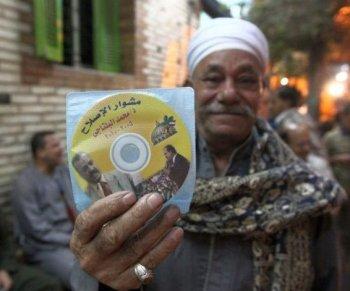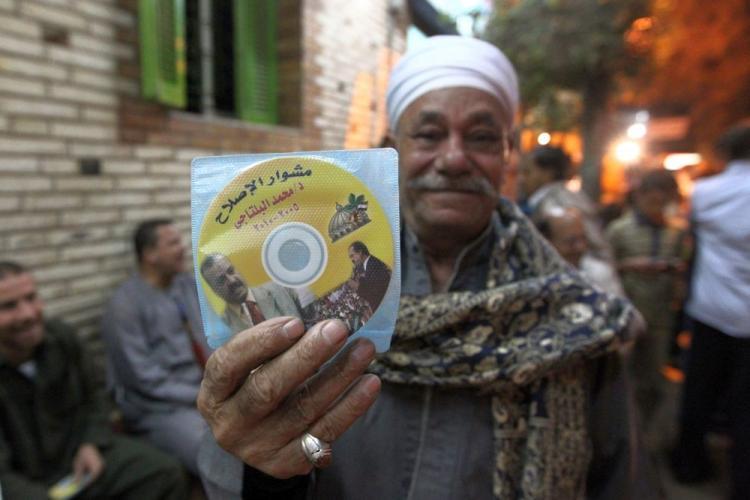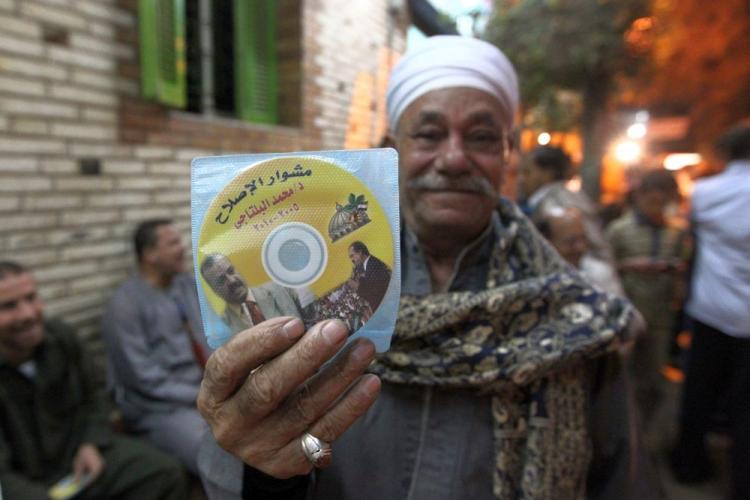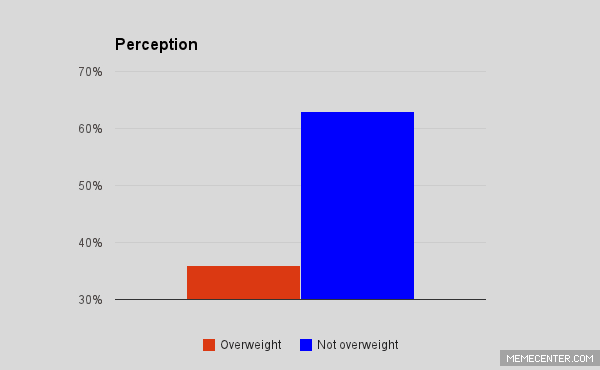When Democracy and Stability Collide
Egypt’s regime escalating suppression of opposition groups and freedom of speech in runup to parliamentary elections.

An Egyptian man holds a CD with information about the Muslim Brotherhood's member of Parliament and parliamentary candidate Mohammed al-Biltagi that was distributed during a campaign rally for the upcoming Egyptian general election in the village of Mit Nama, near Cairo, on Nov. 21. Khaled Desouki/AFP/Getty Images
|Updated:





